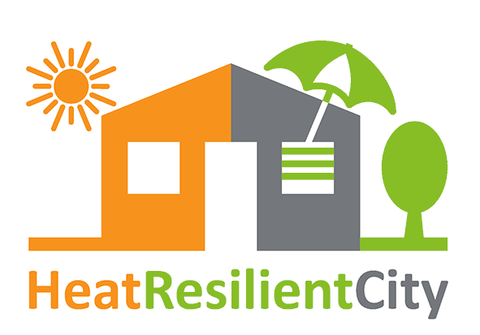Project HeatResilientCity (HRC II)
Heat adaptation of urban building and settlement structures - Actor-oriented implementation support for increasing climate resilience and health care
Sub-project TUD: Development of methods for the quantitative evaluation of measures of heat adatptation in cities
Project duration: February 2021– January 2023
Project description:
The aim of this sub-project 'Method development for the quantitative evaluation of heat adaptation measures in cities is to provide a method for an indepth assessment of the effectiveness of adaptation measures as well as to provide user orientated indicator sets of different complexity for different stakeholders (municipalities, housing companies, experts etc.) including an user’s guide. The sub-project HRC-II-TUD aims at developing quantifiable, climate robust indicators for the evaluation of the effectiveness of adaptation measures to heat in cities. Measures, which have already been implemented or could potentially be implemented, form the basis. The indicators will be derived including classifiable values ranges for different levels (buildings, urban open spaces) and spatial scales of settlement structures (single tree to urban quarter). Transferability of project results to other regions and communities is ensured by using data and information, which are typically available for these users. As a main result of HRC-II-TUD, developed indicators are supplied to the other partners within HRC-II.
A measurement- and model-based data set of urban climate and heat stress is the essential basis for deriving the indicator sets. In addition, this data forms the basis of a model chain to analyze the impact of urban district design on the heat resilience in open spaces and buildings and provides the necessary background information for adaptation and precautionary communication for users of climate information at the same time.
Further Information:
Working group at the Chair of Meteorology, TU Dresden:
Dr. Uta Moderow (Project Scientist), Dr. Astrid Ziemann (Project leader) , Dr. Valeri Goldberg (Project leader), Prof. Dr. Christian Bernhofer (Scientific support)
Co-operation partners:
Leibniz-Institut für ökologische Raumentwicklung e. V. (Koordination), Fachhochschule Erfurt, Landeshauptstadt Dresden Umweltamt und Gesundheitsamt, Landeshauptstadt Erfurt, Hochschule für Technik und Wirtschaft Dresden
Associated partners:
Landeshauptstadt Erfurt, Gesundheitsamt, Eisenbahner-Wohnungsbaugenossenschaft Dresden eG, Wohnungsbaugenossenschaft Zukunft eG, Erfurt


